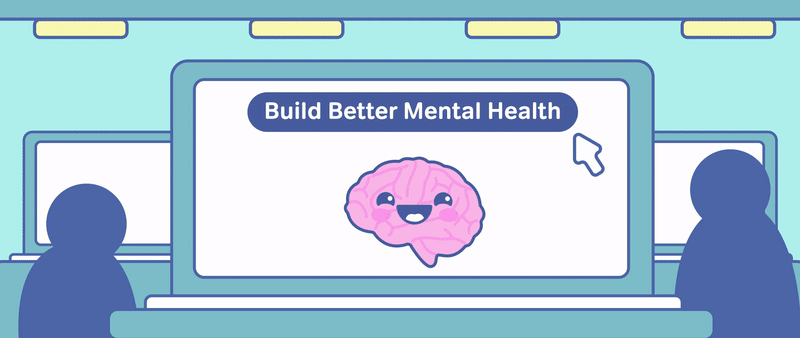Supporting mental health is no longer just personal care, in fact, our workplace is in a very strategic position to create an impact to build better mental health. The success of a business starts with the right people in the right place with the right motivation. It would be remiss if companies underestimate the importance of discussing mental health in the workplace and we will start seeing some direct impacts such as a drop in employee performance, high employee turnover rate, and increased rates of illness, and absenteeism.
So, how can a company build a healthy mental health environment? Besides discussing what to do, it is also important to discuss how to do it in a practical and sustainable way. It is discouraging to see good initiatives only last for a few months. Here, we’d like to share with you the initiatives we kick-started in Nuffnang to move towards that goal.

First initiative: Meeting-free Friday.
Every Friday is free up for everyone to focus on completing work with no / minimum interruptions. However, there is no one size fits all policy, we need to be agile to rethink how a policy can support business needs yet address the impact we want. There are 2 questions to check before we call for a meeting on Friday :
The first question is “What is the urgency level of this meeting?”. We can use the Eisenhower matrix as a guide to give us a better visual position.


If a meeting falls under the Important but Not Urgent category, we would recommend initiating the meeting on the next working week (except Friday). Some examples of this category, such as employee check-ins, interviews, and department weekly meetings. However, if a meeting falls under the Important and Urgent category, we need to be open and make it an exception even if it may interrupt our schedule for Friday. Some examples of this category, such as client complaints and urgent campaign issues.
The second question is “What is the agenda or outcome of this meeting?”. If we do not have a clear goal of what we want to get out of the meeting, it is advisable to rethink the meeting intention instead of figuring it out during the meeting.
Second initiative: Whatsapp and email only from 8.30am to 8.30pm.
We conducted a survey to understand how individuals feel when they receive work messages or emails after working hours, especially late at night. Based on the feedback, it does create a negative impact on the receivers. However, the good news is, with additional information to help manage the receivers’ expectations on the urgency level can significantly improve the situation.
Sharing an example here :


Everyone’s productivity time might be different. With the expectation in mind, receivers are able to make a better judgment on when to reply to a message or email that comes in after 8.30pm. We can also make good use of the “schedule send” feature for less urgent emails.
Third initiative: Meeting slots are only 45 minutes, make it count!
Active listening is hard work and it can be exhausting if there is no break time to refresh ourselves. We understand that not all meetings can be done within 45 minutes, so it is important to allocate 15 minutes of break time before we continue the meeting. To have more efficient meetings, we also suggested the team share the meeting agenda or pre-read in advance. With this extra step, receivers will have some context about the discussion and sufficient time to prepare for questions.
These are the 3 initiatives for our phase 1 mission to Build Better Mental Health and we are still exploring what and how to do it better. Lastly, to know how impactful our initiative is, we are actively doing employee check-in to hear feedback from the team. It is going to be a journey for all of us and we might experience some misalignment along the way. Do not give up and keep exploring ways to realign with everyone.